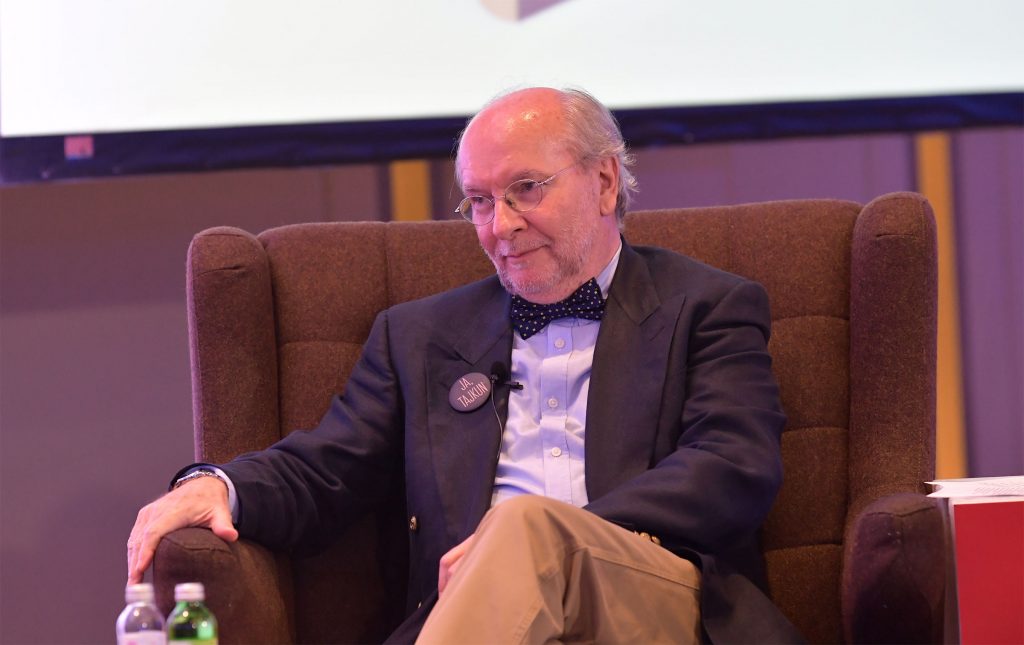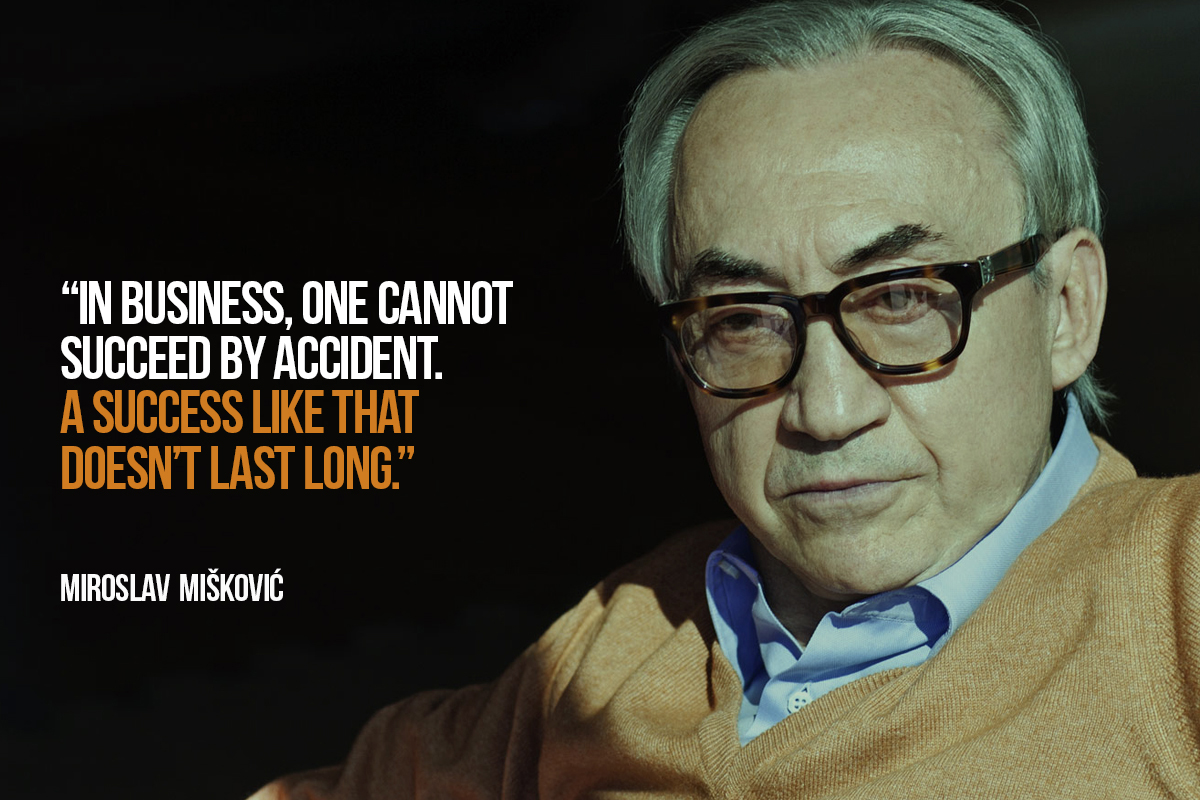In the first edition of the book he gave me, Miroslav Mišković wrote an interesting dedication: “You always write about Serbian economy, but now you can also read how some individuals see the creation of strong economy”.
And really, although I know a little about economy, Mišković’s book has enriched and upgraded my modest knowledge of business, in the same manner as, for example, the stay and study of business creation in America.
This book is the first domestic Bible of business and capitalism seen from inside.
If only it would serve to “divinize”, unite and multiply its followers; Serbia would soon become a normal, decent and civilized country.
At the same time it is a textbook – for students and all young people, as well as for professed professors and would-be analysts. It speaks about what it means to have a company, what operational economy is, how you do business, what the essence of business is and what knowledge and skills are necessary to be in the top ranks of business.
The story of the owner of the largest Serbian company shows without any reserve that it is impossible to be the greatest in the country and the region without knowledge, vision, passion, loyalty, persistence as well as good luck.
For all those who know how to read, the book is also a CHRONICLE of Serbia at the turn of the millennia.
It can be read how in the last decade of the old millennium and the first decade of the new millennium the civilization roads of the modern world and Serbia parted: the Western world strives for new capitalism while Serbia strives to retrieve the old system, communism.
The book-chronicle follows the “development road” and parallel destinies of its two “characters” – Mišković and Serbia.
At the beginning of the 1990s, after the fall of the Berlin Wall and decline of socialism, Mišković ran away from the state-owned economy and public service into private business and entrepreneurship. Serbia went in the opposite direction – state socialism and maintenance of the state-owned property. Mišković went out to the world while Serbia closed itself off from the world.
He knows what he wants and has a vision while Serbia does not know what it wants and does not see its future.
That is a civilization milestone.
How individuals succeeded and positioned themselves can be seen with the naked eye.
Why Delta and Serbia are so different today.
Why there is such a large gap between Delta and Serbia now.
Why Serbia is afraid of Delta and why Serbia is a stone around Delta’s neck.
Serbia and Delta do not understand each other because they speak different languages – the former speaks an archaic language while the latter speaks Esperanto.
There was a short period of time when there was some hope – it is small wonder that Mišković had the best mutual understanding with Djindjić. They spoke the same language and had a vision. In order to eradicate them, Serbia without a vision assassinated the first vision and imprisoned the other.
Preaching his theory Mišković has managed to demonstrate the greatness of the modernization potential of his company. Delta seems to have done more for the modernization of Serbia than all its governments and political elites from the beginning of the transition.
Delta is everything that Serbia is not – it has entered the European Union and operates by its rules; it is the best in the region, keeps reforming and improving so as to respond to world challenges. It finds uncompromising ways out of the crisis; it stands out as a desirable partner of every worldwide company and has a good credit rating in the banks; it is recognized and accepted in the Western Balkans, the best in any business it has undertaken…
Mišković is not a popular person in the public discourse of Serbia. He and his business are judged (virtually) by the people who still look at the modern world in the diopter of the past. For 90 per cent of Serbia’s population capitalism is frowned upon while capitalists are considered to be the main cause of difficult life and all troubles. Every rich and successful man is at the same time exposed to being arrested, having the property seized and being satanized in different ways.
The constant feature of Serbian transition since Josip Broz Tito’s death has been the odium towards capitalism and desperate attempts of the political and intellectual elite to retrieve the old system, socialism. It used to be done with the aid of “economic reforms” and “economic stabilization programs” which turned into “finding our way during the economic sanctions”, then into resistance to globalization and neoliberalism and eventually into combating “tycoons”.
That is why Serbia wasted the last two decades of the 20th century and the first two decades of the 21st century and now, forty years later, it wonders which way to go.
Misa Brkic, Journalist






